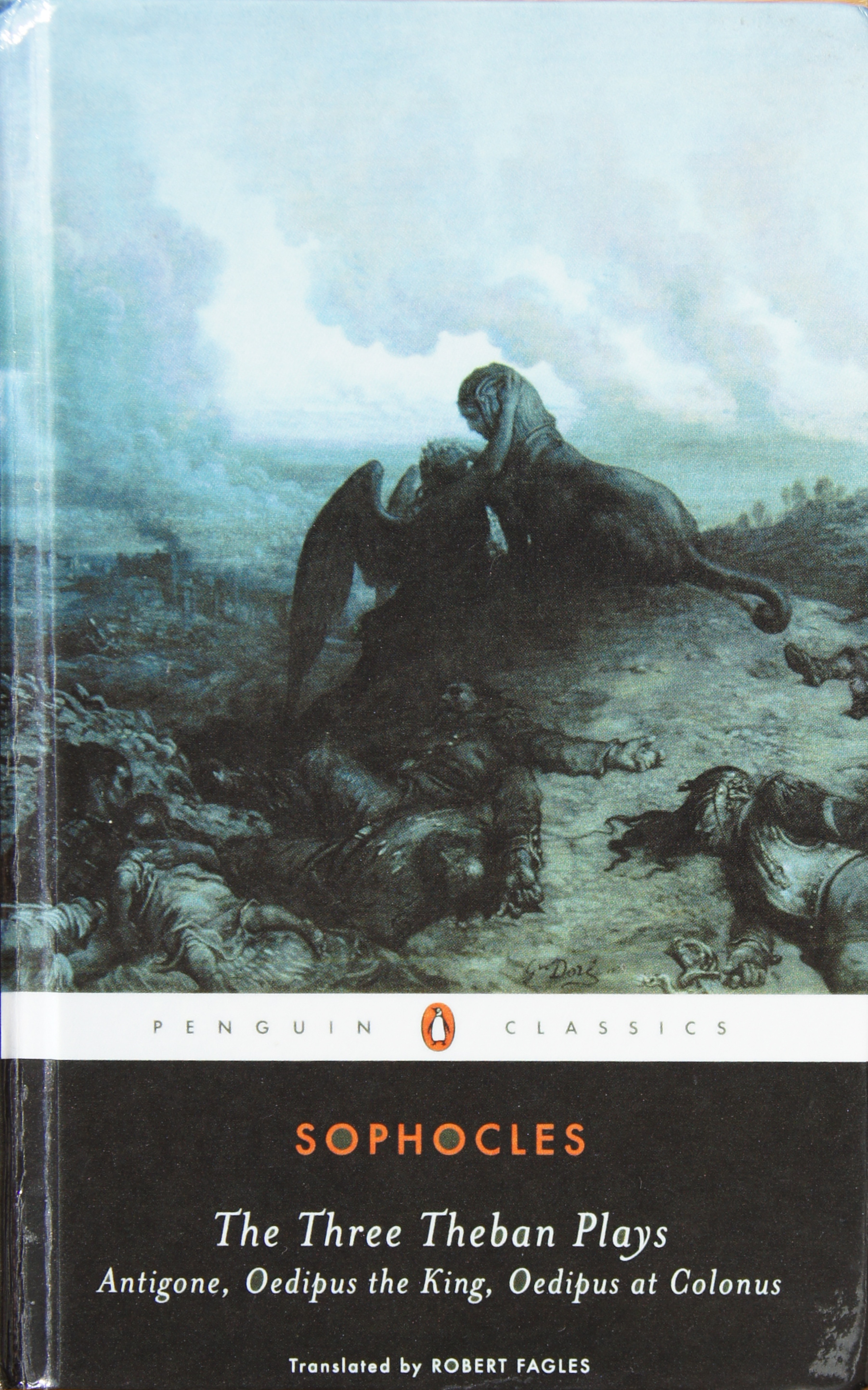
Sophocles – The Theban Plays (Book Review)
The only previous Greek tragedy I had consumed before this was Medea, which proved far more inspiring and savage and intense than what I had expected. To some, perhaps there was a tragedy, but the carnage was so immense and startling, that there was little time for sympathy when stronger emotions of horror and aghast took centre stage…The remarkably brutal portrayal of a Woman scorned has stuck with me for its intensity, poetry and insane all-out righteousness.
And so I approached The Theban Plays hopeful of more of the same.
The book comprises of three plays. Each involve the required, useful but also bothersome chorus, who play their part in linking scenes as if they are not quite human, but part singer, part actor, part poet, with some connexion to the oracles and seers and diviners of all the dark and light arts of that intriguing niche of antiquity. Which is all fine and dandy, even curious…but the focus on rhyme spoils their message, for regardless of the florid manner in which they deploy their wisdom, it often sludges the flow of the already hard to enjoy to anywhere near its fullest prose of the other characters dialogue, to have to reread lines of rhyme to try understand how they were intended to be spoken, or consumed.
As for the story…
Oedipus has a bad run. His journey is…far from ideal. The misfortune he endured unwittingly then finds revealed in its hideous truth in appalling circumstances would be enough to send any man towards demanding an end to such an afflicted, accursed existence…yet the horror does not abate. For the apple rarely falls too far from the tree.
To feel an observer watching the savage fate of a man who meant no ill will, quite the opposite, who comes to realise he has not only killed his own father, but married his mother; their children somehow his brothers and sisters…and to then see some hope, in the ‘Further adventures of Oedipus’ is cruel and wrong. There are no further adventures, there is only more poetic misery. A brief plateau, a few lines of wisdom interspersed amongst the rhymefest of the chorus, but then back to more awfulness, more suffering, more tragedy, ever worsening, for just when you assume, wrongly, that the accursed is the only one to suffer, you then realise it gets worse…for his whole bloodline is branded by the Furies of Fortune with pain and suffering. Only when all have exhausted any hope, any noble gesture, and lay knife in heart from their own hand, hung by nooses from their own arms or mauled by wild dogs as a corpse left to rot on the battlefield…does the woe climax and terminate in some romantic mausoleum which perhaps Shakespeare read when pondering Romeo and Juliet.
I highlighted solely these lines, whilst a steady grimace grew upon my heart and soul whilst reading…
‘it was you, we remember, a newcomer to Cadmus’ town,
that broke our bondage to the vile enchantress’.
Bondage to a vile enchantress! A true gem in the mega rough…
Essentially, if you can pass swiftly through the laboured rhyming form of the chorus, and find some satisfaction in gorging on the capacity for ugliness and spite and the darkest of human deeds, you might well find some value in this book. I would suggest that an offering by Zola would prove more…expansive, yet of a similar hue.
Recent Comments